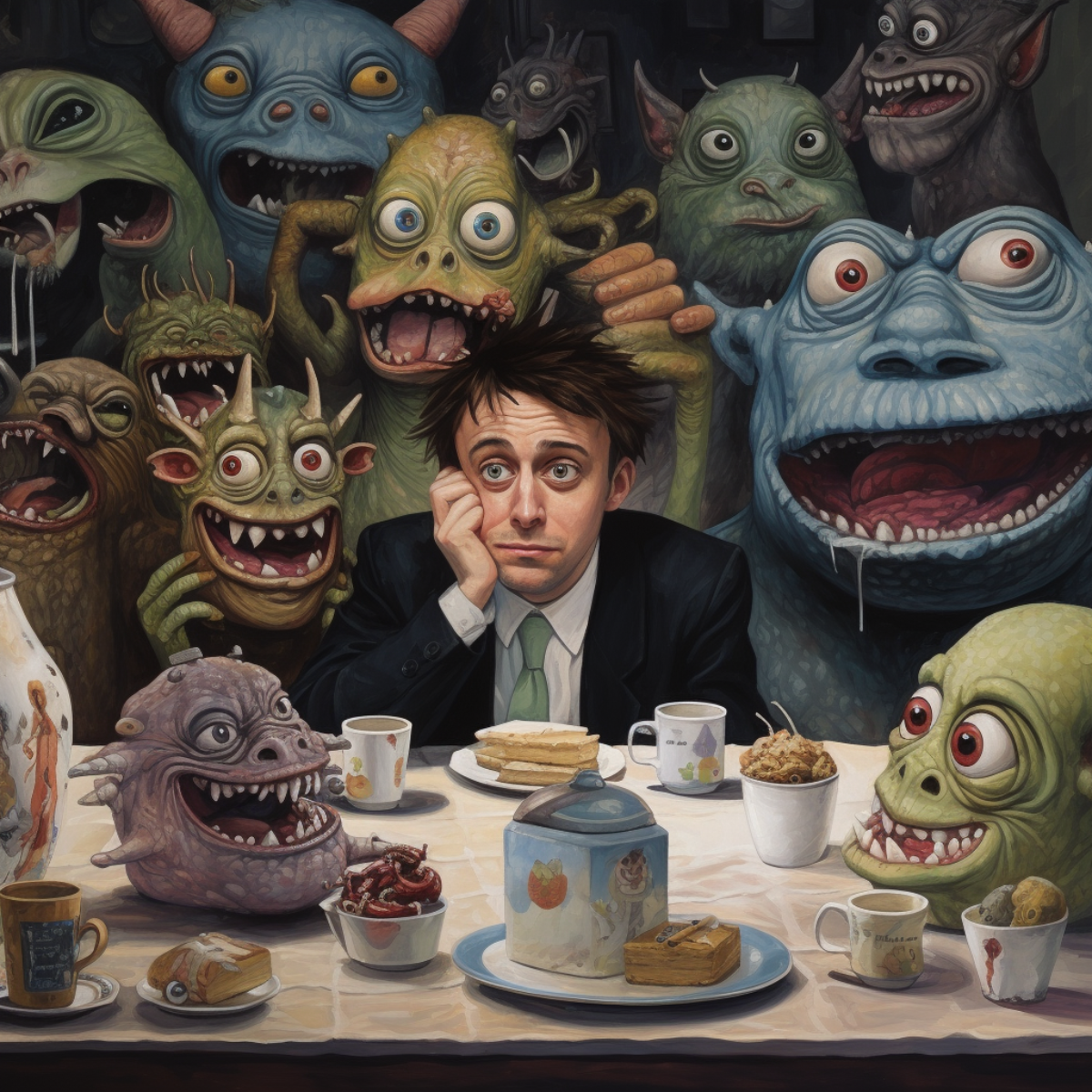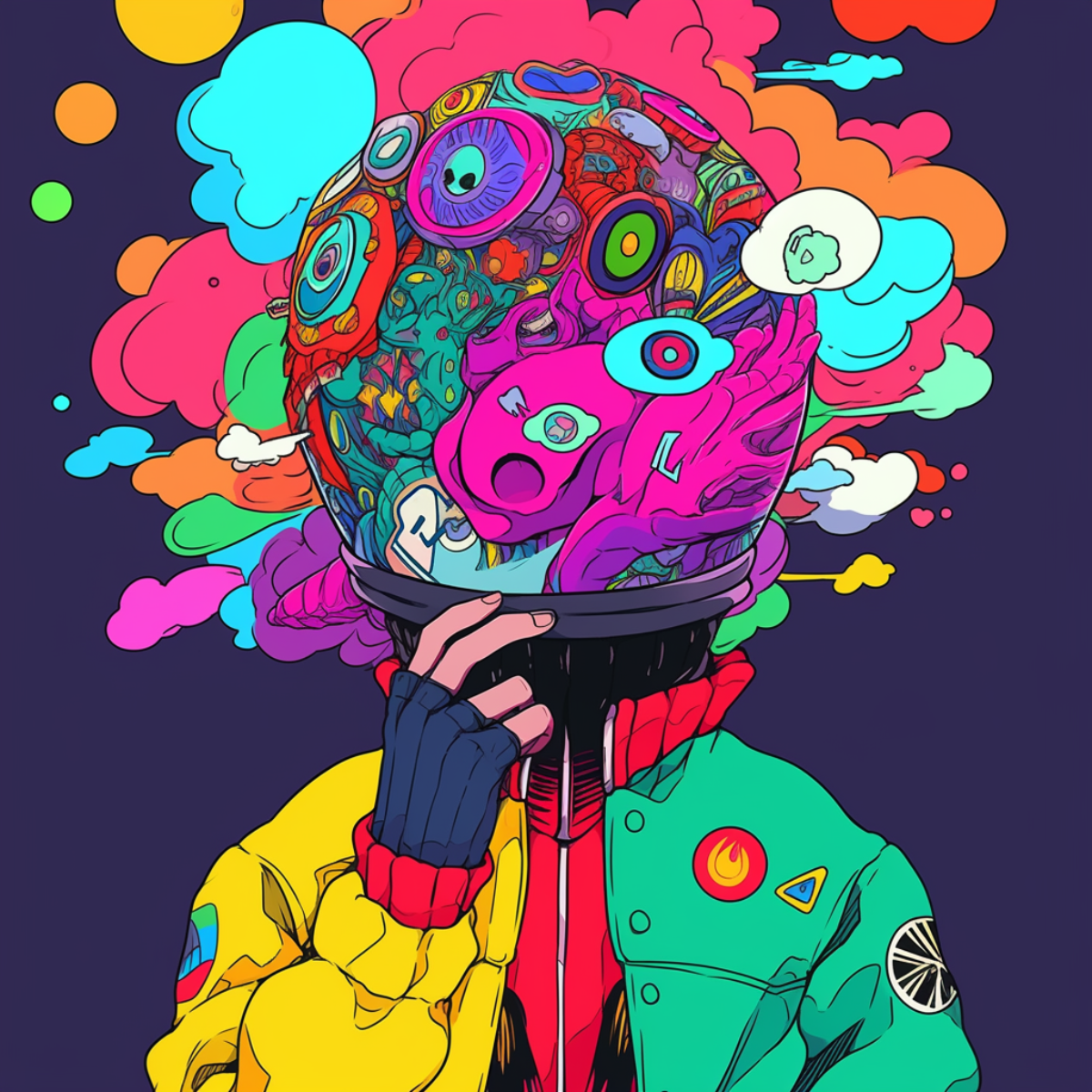
The Wild Side of Your Psyche
Ever had a weird feeling that there’s an unseen force secretly pulling your strings? Well, it’s not as far-fetched as you think. In our last chat, we explored the tip of the mental iceberg, the conscious mind. If you missed it, you can catch up here. Now, are you ready to explore the depths of the unconscious? This is where it starts to get really interesting. So, take a deep breath, we’re about to get deep!
Unlocking the Personal Unconscious
Imagine the personal unconscious as the murky waters just below the surface of the tip of the iceberg. This is the layer where the treasure trove of your personal experiences is hidden away from the spotlight of your conscious self.
But here’s the catch — this layer isn’t just a passive storage space. This is the layer where silent shadows subtly steer your emotions and behaviors. Your unconscious mind is the puppet master backstage. The silent observer of your personal and collective experiences, directing parts of your life without you even knowing it.
Playing in the Dark
The personal unconscious is where your inner demons play an endless game of hide-and-seek. In this hidden world, your shadow self and its complexes take root and grow. They find crafty ways to manifest, sneaking through the cracks in your ego and the various masks you wear. You may be wondering, ‘What’s the difference?’
Well, think of it this way: The psyche is the stage, and your shadow self and complexes are the different types of characters that appear on it. The shadow is the main antagonist. It represents all the personal traits you’ve shoved into the proverbial closet due to societal norms or personal judgments. It’s the hidden parts of your personality; the parts of you that you want to disappear.
But remember — your shadows aren’t just boogeymen hiding in the closet. They hold potential for growth, creativity, and insight if you have the moxie to face it. Want to know more about confronting your shadow self? Check this article out.
On the flip side, complexes are like supporting actors. It’s a collection of emotions, memories, and thoughts centered around a common theme that originates from past experiences or traumas.
To put it simply, your shadow self is the hidden parts of your personality as a whole, and complexes are the specific emotional knots within your shadow self.

Complexes, Archetypes, and Anecdotes
Complexes primarily reside in the personal unconscious — their birthplace and residence. They emerge from emotionally charged experiences that haven’t been fully processed or integrated into your conscious awareness. But here is where it gets strange: The unconscious mind and our complexes are intimately linked to the vast ocean of the collective unconscious.
This deeper layer hides universal archetypes, primordial images, and themes common across all human experiences. These universal archetypes are intricately linked to our personal complexes and play out in our day-to-day experiences.
From Criticism to Complex
Consider a child who frequently faced criticism from a parent for their grades in school. This child might develop a perfectionist complex, where they constantly strive for unattainable standards in their work and personal lives. This complex is driven by a deep-seated fear of failure and a craving for external validation. Now, here’s where it gets interesting: that constant criticism during childhood actually activates archetypes in our collective unconscious, and they project themselves through our complexes.
Take, for example, the endless struggle symbolized by the Sisyphus archetype derived from Greek Mythology, which aligns closely with a perfectionist complex. Sisyphus was condemned to eternal struggles, doomed to repeatedly roll a boulder up a hill only for it to roll back down each time he reached the top.
Similar to Sisyphus, the child who faced endless criticism growing up, will find themselves in a relentless pursuit of perfection, a goal that will always be out of reach. This frivolous pursuit for perfection could become an all-consuming task, leading to a cycle of constant disappointment and self-criticism.
Puppeteers of your Personality
Here’s where it starts to get juicy: when your complexes pop up, it’s often your shadow self pulling the strings. Take getting triggered by someone’s political views, or constantly surrounding yourself with others who share similar views.
That’s your Identity Complex popping in to say ‘hello.’ A challenge to your political views might feel like a personal attack on your identity. This trigger comes from a deep-seated need to belong and to have your identity validated by others.
Here’s how it plays out: When a present-day situation mirrors an aspect of that original, unprocessed emotion, it’s like hitting a nerve. The complex is suddenly thrust into the spotlight of your conscious mind, often with overwhelming intensity. It’s like pressing on a bruise — the pain, once an echo, becomes your sole focus.
Why does it sting? Because you’ve probably shoved that feeling deep into your shadow, pretending it’s not a part of you. Someone with different political views walks by, and whoops — your shadow decides to play a game of darts with your identity complex. This denial might seem to keep things under wraps, but it’s more like a band-aid on a leaky pipe — it doesn’t fix the deeper issue.

Embracing the Shadow
So how do you fix it? It’s all about diving into shadow work. It’s like turning on the lights in that dusty attic of your mind and finally facing what’s been lurking there. You’ve got to spot these hidden bits, give them a nod of recognition, catch yourself projecting them onto the world, even name them, and then weave them into the big picture of who you are. It’s like piecing together a puzzle. As you untangle each complex, you’re lighting up those dark corners, leading to some real-deal self-awareness and wholeness. It’s like spring cleaning for the soul.
Complex Conundrums
Keep in mind that complexes are not one-size-fits-all folks; they are as unique as the individuals who carry them. They don’t come from a predefined list but are born from our personal experiences and emotional responses. Each complex is a cluster of feelings, thoughts, and memories, intricately linked to our narrative and the collective human experience as a whole.
If you made it this far, I’m proud of you. Not everyone enjoys a deep dive into the darkest parts of their soul. Next, we’ll plunge into the collective unconscious, where we’ll explore how these personal quirks link up with the universal patterns of the collective unconscious. Stay tuned!
© 2023 Evelyn Ann Rose. All rights reserved.




Your article helped me a lot, is there any more related content? Thanks!
Thanks for sharing. I read many of your blog posts, cool, your blog is very good.
I appreciate the kind words. I am going to be posting more content soon. I hope to see you around 😀